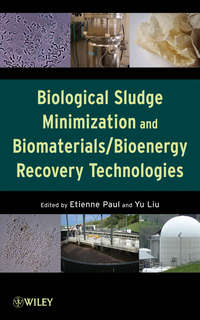Liu Yu - Biological Sludge Minimization and Biomaterials/Bioenergy Recovery Technologies

A comprehensive guide to sludge management, reuse, and disposal When wastewater is treated, reducing organic material to carbon dioxide, water, and bacterial cells—the cells are disposed of, producing a semisolid and nutrient-rich byproduct called sludge. The expansion in global population and industrial activity has turned the production of excess sludge into an international environmental challenge, with the ultimate disposal of excess sludge now one of the most expensive problems faced by wastewater facilities. Written by two leading environmental engineers, Biological Sludge Minimization and Biomaterials/Bioenergy Recovery Technologies offers a comprehensive look at cutting-edge techniques for reducing sludge production, converting sludge into a value-added material, recovering useful resources from sludge, and sludge incineration. Reflecting the impact of new stringent environmental legislation, this book offers a frank appraisal of how sludge can be realistically managed, covering key concerns and the latest tools: Fundamentals of biological processes for wastewater treatment, wastewater microbiology, and microbial metabolism, essential to understanding how sludge is produced Prediction of primary sludge and waste-activated sludge production, among the chief design and operational challenges of a wastewater treatment plant Technologies for sludge reduction, with a focus on reducing microbial growth yield as well as enhancing sludge disintegration The use of anerobic digestion of sewage sludge for biogas recovery, in terms of process fundamentals, design, and operation The use of the microbial fuel cell (MFC) system for the sustainable treatment of organic wastes and electrical energy recovery










